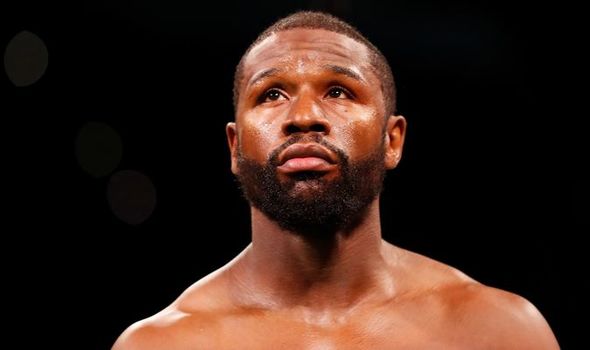“This Is Pretty Low”: Mayweather Promotions CEO Joins Boxing World in Slamming Matchmaker Rick Glaser for ‘No R.I.P’ Take On Demise of Longtime Boxing Manager

The boxing community, typically presenting a united front in grief, found itself divided by Glaser’s words. His stark departure from the norm of respectful remembrance sparks controversy. What could lead to such a blatant dismissal of decorum?
Cameron Dunkin’s passing and Rick Glaser’s controversial response
Cameron Dunkin, a towering figure in the boxing management world, passed away at 67 after a long-standing battle with cancer. His demise marked the end of an illustrious career, during which he guided the fortunes of many celebrated boxers. Most notably, at the time of his death, he was managing the promising talent of Jaron ‘Boots’ Ennis, the IBF welterweight titleholder.
Breaking, longtime Boxing Manager #CameronDunkin has passed away this morning. Dunkin managed many top fighters over his 33 years in #Boxing. Dunkin was 67, & in ill-health for years. There's no R.I.P. here, it's Good Riddance Cameron Dunkin. The lies have now officially stopped.
— Rick Glaser (@RealRickGlaser1) January 2, 2024
In stark contrast to the usual tributes, Rick Glaser, a boxing matchmaker, took to social media with a jarring statement. He tweeted, “Breaking, longtime Boxing Manager #CameronDunkin has passed away this morning… There’s no R.I.P. here, it’s Good Riddance Cameron Dunkin. The lies have now officially stopped.” This provocative tweet sharply veered away from the expected norms of respect and condolence, igniting a wave of criticism across the boxing community.
Hi comments set set the stage for a storm of reactions from notable figures like Leonard Ellerbe and others within the boxing fraternity.
Leonard Ellerbe and others disapprove of Rick’s tweet
The reaction to Rick Glaser’s incendiary tweet was swift and severe, resonating throughout the boxing world. Leonard Ellerbe, the CEO of Mayweather Promotions, led the charge, expressing his deep disdain for Glaser’s remarks. Ellerbe, known for his straightforwardness, vehemently criticized Glaser, labeling him as exceptionally contemptible within the boxing community.
Another example of what I’ve been saying, by far he’s the biggest piece of shit in all of boxing. 💯 https://t.co/iaMMfSAVAE
— Leonard Ellerbe (@LEllerbe) January 2, 2024
Following Ellerbe’s lead, others in the boxing circle voiced their disapproval. One person pointed out the lack of empathy in Glaser’s words, reminding everyone that even those we disagree with have families who feel their loss deeply.
Damn Rick, this is pretty low. Even liars have kids and a family…
— DREWSKI 🥊 (@yoitzdrew15) January 2, 2024
Jamel Herring, a respected boxer, offered a different angle, suggesting that Glaser’s motive might be to generate controversy for personal gain. He highlighted the disturbing trend of exploiting sensitive situations for clicks and views.
I'm convinced Rick is using his account for monetization purposes, clicks and views. In the end, it’s still a crazy world we live in, where you don't have to like someone, but celebrating their passing? Now that's a whole other level. 😮💨
— Jamel Herring (@JamelHerring) January 2, 2024
Another user chimed in, expressing disappointment in Glaser’s choice of words.
Unnecessary rick lol. You’re better than that
— CFSportsClub (@NutJobJimCF) January 2, 2024
Lastly, one person commented on the heartlessness of Glaser’s statement, particularly considering the impact on Dunkin’s family.
The "no r.ip. here, it's good riddance" seems heartless, think about his family..
— Anthony Calixto (@anthonycalixto) January 2, 2024
Each of these reactions, varying in perspective, collectively highlighted a fundamental expectation within the boxing community: a standard of respect and empathy, especially in the wake of a loss. This incident serves as a poignant reminder of the impact our words can have, particularly in moments of collective mourning.
It raises a crucial question for all of us, not just in the world of boxing but in every sphere of interaction: How do we balance the freedom of expression with the responsibility of empathy, especially in the face of someone’s passing?
